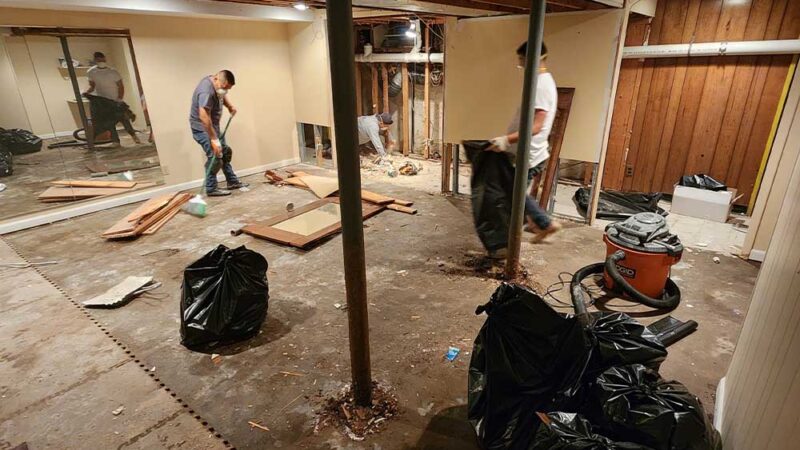The Ultimate Guide to First-Time Home Buying: Tips and Pitfalls to Avoid

Buying your first home is an exciting milestone, but it can also be a daunting experience filled with complex decisions and potential pitfalls. To help you navigate this journey successfully, we’ve put together a comprehensive guide that covers essential tips for first-time homebuyers. From understanding the home buying process to choosing the right real estate agent, we’ve got you covered.
Steps to Take Before Starting Your Home Search
Before you start browsing listings and attending open houses, it’s crucial to lay a solid foundation for your home-buying journey. Here are some key steps to take:
- Assess Your Financial Situation
– Budgeting: Determine how much you can afford to spend on a home. Consider your monthly income, expenses, and savings.
– Credit Score: Check your credit score and, if necessary, take steps to improve it. A higher credit score can help you secure a better mortgage rate.
– Savings: Ensure you have enough saved for a down payment, closing costs, and an emergency fund.
- Define Your Home Needs and Wants
– Location: Decide on the neighborhoods or areas where you want to live.
– Size and Type: Determine the size of the home you need, including the number of bedrooms and bathrooms.
– Must-Haves: Make a list of essential features (e.g., a big backyard, proximity to schools) versus nice-to-have features.
- Get Educated on the Market
– Research: Understand current market conditions in your desired area. Are home prices rising or falling? If you have no time for this then contact professionals like UMH Properties
– Timing: Consider the best time to buy. Spring and summer are often the busiest seasons, but there can be advantages to buying in the off-season.
Importance of Getting Pre-Approved for a Mortgage
Getting pre-approved for a mortgage is a crucial step in the home-buying process. Here’s why:
- Know Your Budget
A pre-approval letter from a lender gives you a clear idea of how much you can borrow. This helps you set a realistic budget and avoid falling in love with a home you can’t afford.
- Strengthen Your Offer
Sellers are more likely to take your offer seriously if you have a pre-approval letter. It shows that you are a qualified buyer with financing in place.
- Speed Up the Closing Process
With pre-approval, much of the mortgage paperwork is already completed, which can expedite the closing process once you find your home.
Steps to Get Pre-Approved
– Check Your Credit: Ensure your credit report is accurate and correct any errors.
– Gather Documentation: Prepare documents such as pay stubs, tax returns, and bank statements.
– Shop Around: Compare mortgage rates and terms from different lenders to find the best deal.
– Apply: Submit your application and await your pre-approval letter.
How to Choose the Right Real Estate Agent
A good real estate agent can be an invaluable resource for first-time homebuyers. Here’s how to choose the right one:
- Research and Referrals
– Ask for Recommendations: Seek referrals from friends, family, and colleagues who have had positive experiences.
– Online Reviews: Read reviews and testimonials online to gauge an agent’s reputation.
- Interview Multiple Agents
– Experience: Look for an agent with experience in your desired area and price range.
– Communication: Choose an agent who communicates clearly and regularly.
– Compatibility: Ensure you feel comfortable with the agent and trust their advice.
- Check Credentials
– Licensing: Verify that the agent is licensed and in good standing with the state real estate commission.
– Certifications: Look for additional certifications or designations that indicate specialized knowledge.
Understanding Closing Costs and Fees
Closing costs are the fees and expenses you must pay when finalizing your mortgage. Understanding these costs helps you budget accurately and avoid surprises.
Typical Closing Costs Include:
– Loan Origination Fees: Charged by the lender for processing the loan.
– Appraisal Fees: For assessing the home’s value.
– Inspection Fees: For professional home inspections.
– Title Insurance: Protects against claims on the property.
– Attorney Fees: If required in your state.
– Escrow Fees: For handling the closing process.
Tips for Managing Closing Costs
– Ask for Estimates: Request a Loan Estimate from your lender to understand the anticipated closing costs.
– Negotiate: Some fees may be negotiable. Don’t hesitate to ask.
– Shop Around: Compare costs from different lenders and service providers.
– Budget: Set aside funds specifically for closing costs to avoid last-minute financial stress.
Common First-Time Homebuyer Mistakes and How to Avoid Them
- Not Getting Pre-Approved
Skipping pre-approval can lead to disappointment and missed opportunities. Always get pre-approved before house hunting.
- Overlooking Additional Costs
Beyond the purchase price, factor in costs like property taxes, homeowners insurance, and maintenance.
- Skipping the Home Inspection
A thorough home inspection can reveal potential issues that could cost you later. Never skip this crucial step.
- Letting Emotions Drive Decisions
It’s easy to fall in love with a home, but make decisions based on logic and facts, not emotions.
- Not Considering Resale Value
Think about the future resale value of the home. Location, neighborhood trends, and potential for property appreciation should influence your decision.
Buying your first home is a significant achievement, but it requires careful planning and informed decision-making. By following these tips and avoiding common pitfalls, you can navigate the real estate market with confidence and find the perfect home for you. Happy house hunting!







